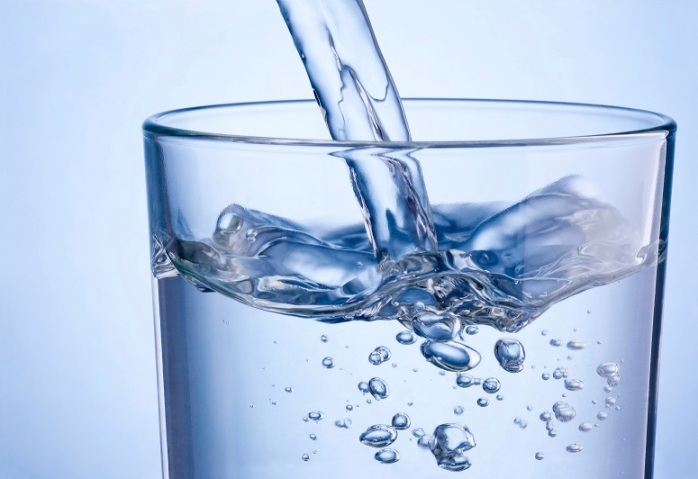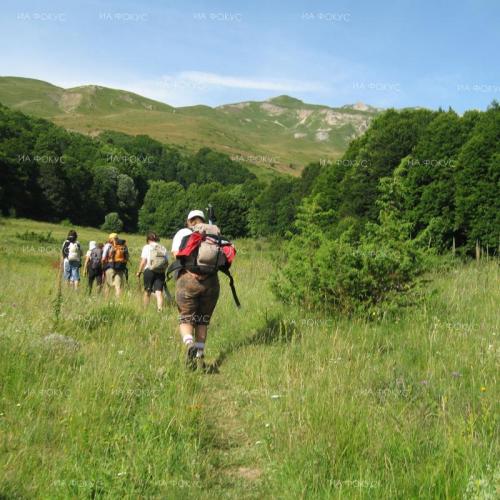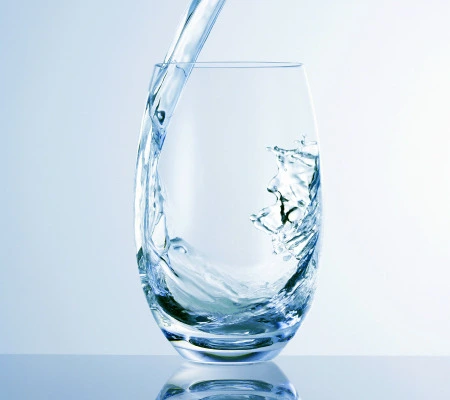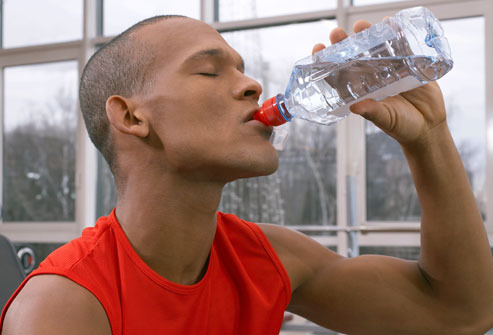During exercise hydration levels diminish, this can impact workouts
 During exercise it is important to pay attention to your hydration level. A well-hydrated athlete improves his chances of not only winning but also reduces his risk for injury.
During exercise it is important to pay attention to your hydration level. A well-hydrated athlete improves his chances of not only winning but also reduces his risk for injury.
- Water makes up approximately 70% of the body’s composition.
- Water transports nutrients and gases.
- Water helps to remove waste and toxins from the body.
- Water helps to regulate the body’s temperature.
Some signs that you could be de-hydrated include – muscular cramps, dizziness, nausea, headaches, fatigue and lethargy. A good way to prevent dehydration is to play attention to fluid intake throughout the day.
Daily
To prevent dehydration
- drink 8-16 ozs. of water each morning upon waking up,
- take sips of water throughout the day,
- you may consider drinking low calorie, low sugar drinks but avoid alcohol or caffeinated drinks such as coffee and sodas, they are diuretics which can cause dehydration.
Exercise
- Two hours before exercise drink 8 to 16 ounces of water.
- According to the American College of Sports Medicine (ACSM), a good rule of thumb is to drink 20-40 ounces per hour of a cool, non-carbonated beverage, this equates to ½ to one cup fluid for every 15 minutes of exercise. A helpful hint: an ounce equals approximately one “gulp”.
- Research shows that fluids that are flavored, lightly sweetened and contain some sodium help stimulate voluntary drinking, more so than water alone.
- Besides enhancing flavor, the use of carbohydrates as the sweetening agent can also help active persons maintain their physical performance.
What to drink
- After exercise drink 16 ounces of fluid for each pound lost.
- Drink even when you don’t feel thirsty, because by the time you feel thirsty you have already begun to dehydrate. Once you begin to dehydrate your performance will begin to suffer.
- Attentive hydration will greatly benefit your recovery time and consequent workouts.
- Research indicates physically active individuals should drink 10 to 12 cups of fluid per day.
- Some people can lose as much as 5 quarts of fluid per day while others may require up to 10 quarts.
Tips
- Try to drink some fluid ever ½ hour to hour throughout the day, not just when thirsty.
- Don’t wait until you get thirsty, when you feel thirsty, you’ve already lost important fluids & electrolytes and may be dehydrated.
- Drink fluids before, during & after exercise.
- Always have a bottle of water or sports drink with you when working out to ensure prpoer hydration.
- Check your urine to determine hydration status, clear to light-colored urine means you’re well hydrated.
“The people who say they don’t have time to take care of themselves will soon discover they’re spending all their time being sick.” -Patricia Alexander-


